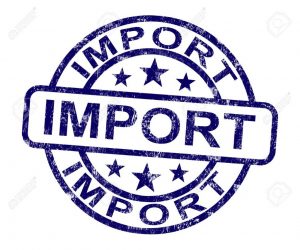
UK-based IWG Plc, a flexible office solutions provider, is expanding its network in Ukraine and opening a new Regus workspace in Kyiv.
According to a press release from the company, the new workspace of nearly 1,700 square meters will be located in the business center Avenue 53 in Peremohy Avenue, and will be designed for 295 jobs.
“We have been looking for a location in Peremohy Avenue for a long time, because there was a request from our residents who travel to the center of the capital every day from Akademmistechko or Irpin and spend more than an hour in traffic jams, because time is the most valuable thing for each of us. Therefore, expanding our network in Kyiv, we opted for Avenue 53,” Director of IWG in Ukraine Yulia Lytvynenko said.
Despite the slump during the quarantine period, she said the IWG expects demand for flexible office solutions without fixed jobs to grow.
“Now, due to the high level of uncertainty, a classic office with a long-term lease is associated with great risks. While flexible offices allow companies to increase or decrease the number of employees without financial losses and pay only for the area they use,” she said.
IWG (formerly Regus Group) is the global operator of leading office rental companies. The first Regus office center in Ukraine is Horizon Tower in Shelkovichna Street was opened in 1998. In total in Ukraine as of July 2020 IWG is represented by two brands Regus and Spaces in ten business centers in Kyiv: Maidan Plaza Spaces, Horizon Tower, Kyiv Podil, Gulliver, Horizon Park Business Center, Podil Heritage, IQ center, Silver Breeze, Forum West Side, and Avenue 53.

The Ukrainian Golf Federation held the Open Amateur Championship of Ukraine. These competitions last for three days and are considered the most important annual event of the golf season.
From July 10 to 12, golfers from all over the country gathered at the Superior Golf Club in Kharkiv.
Each participant showed decent results, the best – became winners. The winners of the Ukrainian Golf Championship 2020 receive sports titles and ranks, and the results of players are taken into account in the World Amateur Golf Ranking (WAGR) and in the National Ranking.
Ivan Malovychko won the national championship among men and Maria Fedorovych among women.
A special guest of the Championship was David Kearney, an international consultant of the Ukrainian Golf Federation for the development of this sport. He held master classes for coaches of the Federation, told how to use the innovative equipment TrackMan, which the Ukrainian Golf Federation purchased for the training of golfers.
2020 has become a year of change for Ukrainian golf. A number of innovations have been introduced to make the sport more accessible. Today the Federation is working on the development of children’s, women’s, junior and inclusive golf. The National Junior Golf Team was established, and the first Children’s and youth sports school of the Olympic golf reserve was opened in Ukraine.
“This year the Federation has focused on young people. Today, juniors are showing good results and are even ahead of adult golfers. We see the perspective of working with the younger generation. Therefore, we will continue to work on development, including children’s and youth golf. And we hope that in a few years Ukraine will have golfers who will worthily represent our country at world-class competitions, ” – said Vitaliy Khomutynnik, President of the Ukrainian Golf Federation.
Over the last year, the number of golfers in Ukraine has doubled. After the quarantine restrictions were eased, even more people joined golf, because golf is an outdoor game where the distance between athletes is maintained.

The Ukrainian Golf Federation held the Open Amateur Championship of Ukraine. These competitions last for three days and are considered the most important annual event of the golf season.
From July 10 to 12, golfers from all over the country gathered at the Superior Golf Club in Kharkiv.
Each participant showed decent results, the best – became winners. The winners of the Ukrainian Golf Championship 2020 receive sports titles and ranks, and the results of players are taken into account in the World Amateur Golf Ranking (WAGR) and in the National Ranking.
Ivan Malovychko won the national championship among men and Maria Fedorovych among women.
A special guest of the Championship was David Kearney, an international consultant of the Ukrainian Golf Federation for the development of this sport. He held master classes for coaches of the Federation, told how to use the innovative equipment TrackMan, which the Ukrainian Golf Federation purchased for the training of golfers.
2020 has become a year of change for Ukrainian golf. A number of innovations have been introduced to make the sport more accessible. Today the Federation is working on the development of children’s, women’s, junior and inclusive golf. The National Junior Golf Team was established, and the first Children’s and youth sports school of the Olympic golf reserve was opened in Ukraine.
“This year the Federation has focused on young people. Today, juniors are showing good results and are even ahead of adult golfers. We see the perspective of working with the younger generation. Therefore, we will continue to work on development, including children’s and youth golf. And we hope that in a few years Ukraine will have golfers who will worthily represent our country at world-class competitions, ” – said Vitaliy Khomutynnik, President of the Ukrainian Golf Federation.
Over the last year, the number of golfers in Ukraine has doubled. After the quarantine restrictions were eased, even more people joined golf, because golf is an outdoor game where the distance between athletes is maintained.
Interfax-Ukraine – media partner

The Cabinet of Ministers of Ukraine has proposed the Verkhovna Rada to ratify the protocol signed between Ukraine and the UK in 2019, which will provide an opportunity to create legal grounds for international freight transportation by Euro-5 and higher vehicles without obtaining necessary permits.
The Cabinet of Ministers adopted a corresponding decision on July 15.
According to an explanatory note to the document, the text of which is available to Interfax-Ukraine, the corresponding protocol was developed with the aim of improving the legal framework, intensifying the process of liberalization of international road transportation between Ukraine and Britain, in particular to avoid a situation with a lack of permits for Ukrainian road carriers, as occurred with Ukraine and Poland.
According to the developer of the document, the Ministry of Infrastructure of Ukraine, the implementation of international freight carriage without permits will give an extremely positive impetus to the development of trade between countries, as well as the development of the transport sector.
“Now the fleet of vehicles transporting to the United Kingdom of Great Britain and Northern Ireland includes vehicles with engines that meet high environmental standards. The implementation of this draft protocol will provide new opportunities for domestic carriers to carry out their activities. In addition, Ukraine will be able to attract additional freight traffic, as British carriers will also be able to carry out transportation to Ukraine without permits,” the Ministry of Infrastructure said.

The Cabinet of Ministers of Ukraine decided to ban the import of wagons of residents and the railway administration of the Russian Federation into Ukraine at a meeting on Wednesday, Verkhovna Rada deputy Oleksiy Honcharenko (the European Solidarity faction) said on his Telegram channel. According to the document released by him, in particular, the import of wagons into the customs territory of Ukraine, among the railway administrations, in registration of which there is or was the railway administration of the Russian Federation from February 20, 2014, is forbidden until December 31, 2020 (inclusively).
The decision comes into force from the day of its publication.
“By the Cabinet of Ministers of Ukraine decision No. 1147 dated December 30, 2015 a ban on the import into the customs territory of Ukraine of railway wagons that were in use and which are imported in the customs regime of imports from the Russian Federation has already been introduced. However, since November 2019 Ukraine’s resident legal entities purchased 1,165 wagons, the country of origin of which was not Russia. Some 608 wagon of them were previously owned by resident enterprises of the Russian Federation, and 15 wagons were owned by resident enterprises of the Russian Federation since 2014. In order to ban such rolling stocks as well, we made the relevant amendments to the decision, which the government supported today,” Minister of Infrastructure of Ukraine Vladyslav Krykliy said.
National bank of Ukraine’s official rates as of 15/07/20

Source: National Bank of Ukraine